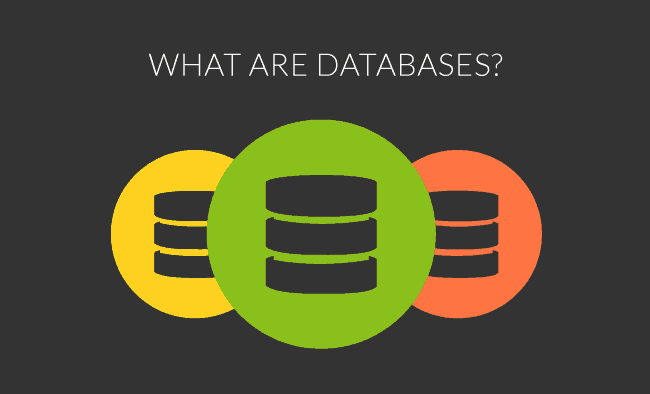What are databases? Factors to bear in mind when choosing one
In our day-to-day life, databases play a much more important role than we think. We can go through different establishments and businesses, without stopping to think that if it weren’t for the databases, it would be very complicated to carry out tasks as simple as checking if the trousers that we look for in our usual clothing store is available in our size.
First of all, before starting with the technicalities that might end up boring the reader, let’s start with the most basic concepts about what are databases and slowly go through to continue discovering that we must take into account when choosing one.
If we look back, we will find examples of databases in use in numerous remote places of time. The origin of the databases dates back to the ancient times, where libraries and all kinds of records had already been built. They were also used to compile information on censuses and harvests. Despite this, the search through them was slow and ineffective and there was no machinery to replace manual labour. Much later, in response to the growing need to store useful information, we began using computers for this purpose.
Databases are an essential part of the information systems in which they are integrated. The current state-of-the-art database technology in the world is the result of the evolution that has taken place over decades in data processing and information management. This technology has developed over time, from the most primitive methods of the 1950s to today’s powerful systems, driven on the one hand by the demand and need of information management but restricted by the limitations of today’s technology.
Early data processing systems primarily solved administrative tasks to reduce paperwork. These systems have evolved towards the management and production of information, which has become a vital resource for companies nowadays. Today, the most important function of database systems is to serve as a foundation of information systems for corporate management.
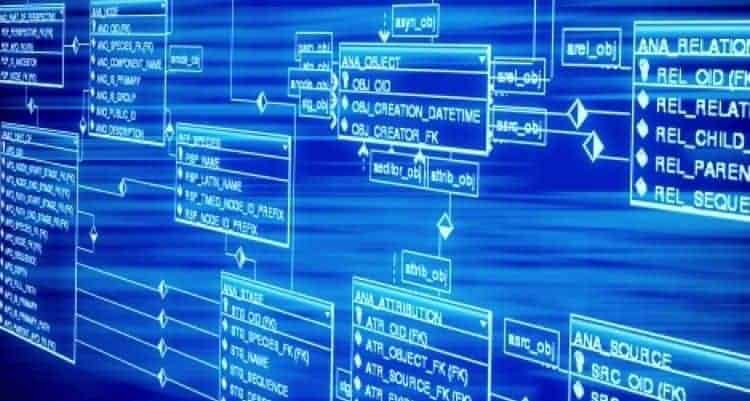
The qualities that make information a fundamental resource for organizations and individual users are:
- Precision
- Opportunity
- Security
- Completion (must be complete)
- Meaning
- Coherence
What are databases, then?
To continue on our way and answer the question, what are databases? Let’s review their utilities and functions. Many of them are deduced by logic, but sure you don’t know some of them.
In order to function properly, every organization needs a set of information that has to be transmitted among the different parts that make it up (elements), as well as from and to the outside of the organization itself.
The traditional systems were file-based and process-oriented. Applications were designed and deployed independently, causing data to be duplicated. Today there is a transfer between these applications to avoid this redundancy error.
The information contained in a database is integrated, because it can be considered as the unification of several data files from which we have eliminated redundancy; and shared, because the programs that used to access individual files, now access the common data repository, so that each user and application will have access to a set of data.
Some of the most common models of databases, depending on their function and the information they contain, are: hierarchical, network, transactional, relational, multidimensional, object-oriented, documentary or deductive.
Finally, after these clarifications and basic concepts, we can give a technical definition of what are databases:
“A database is an exhaustive, non-redundant set of structured data, organized independently of its use and implementation on a machine, accessible in real time and compatible by concurrent users who need different information, unpredictable in time“. Flory, 1982.
Some of the advantages and disadvantages:
Advantages in the use of databases:
- Data can be shared
- Established standards can be enforced
- Security Restrictions
- Redundancy reduction
- Inconsistency can be avoided
Disadvantages in the use of databases:
- Expensive installation
- Specialized personnel required
- Long and difficult implantation
- Poor standardization
- Lack of short-term profitability
- Gap between theory and practice
What should be considered when choosing a Database Management System?
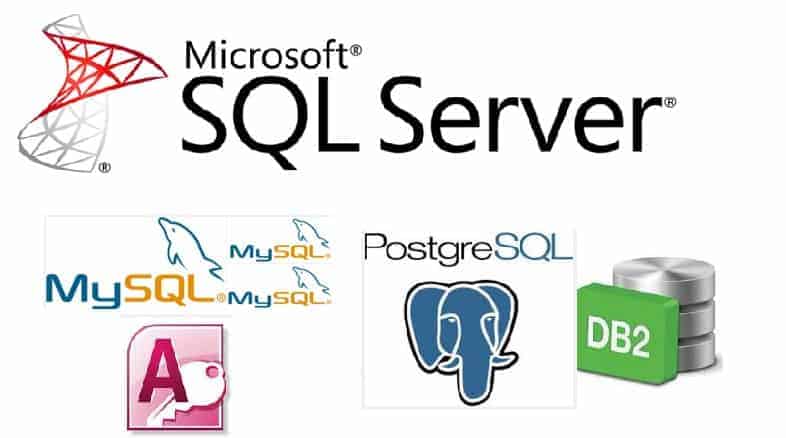
As in the previous section of this article, we will begin by clarifying the most basic concepts to answer this question and thus make it much easier to understand and decide when choosing a DBMS.
In all probability you will have heard the name of some of the famous database management systems without knowing it, because they have been with us for many years making the work of companies in our environment easier, and have become absolutely essential.
Let’s start by defining the Database Management System. It would include a set of programs, which allows the modification, storage and extraction of all the information we have in a database. Not only does it perform these tasks, but it also provides tools to add, delete, modify and analyze the data we want.
The user has the possibility to access the information by making use of the specific tools for querying and generating reports, as well as making use of the applications for this purpose. The data that make up the database is usually accessed through so-called query languages, which are high-level languages whose function is to simplify the costly task of developing an application.
DBMSs provide us with methods for maintaining data integrity, managing user access to data, and having the ability to retrieve information. Now we can try to address this question, which of all the Database Management Systems should I choose?
We have a very wide range to choose from among all the DBMSs available on the market. In this article, giving a personal opinion, I am only going to choose one out of all available. It does not mean that the rest of them do not perform their function correctly, but it has a series of characteristics that make me choose this one in particular. If you want to see a list of the best databases of 2017 you can click on this link.
The one I chose today is MySQL. One of the factors why it became more popular is because it is open source, and because of its widespread use in web applications.
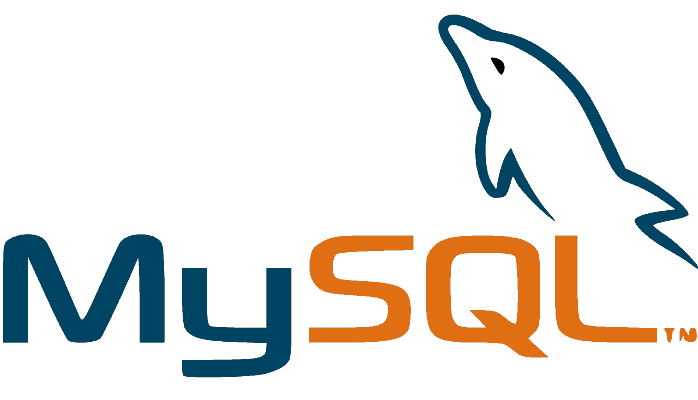
We’ll take a quick look at its features and functions:
- MySQL is a multiplatform system as opposed to other DBMSs.
- The default storage engine from version 5.5 onwards is InnoDB, whose main feature is that it supports transactions and log blocking.
- Supports multiple storage engines.
- Low cost. The Community version is free software under the GNU license. Its commercial version is quite inexpensive.
- Due to its simplicity it has a high performance.
- It has a Workbench Tool.
This important tool included in MySQL deserves a special mention. It is a visual environment application that allows us to design databases, execute and manage SQL queries. It substantially facilitates the creation of new relational systems and editing of already created databases.
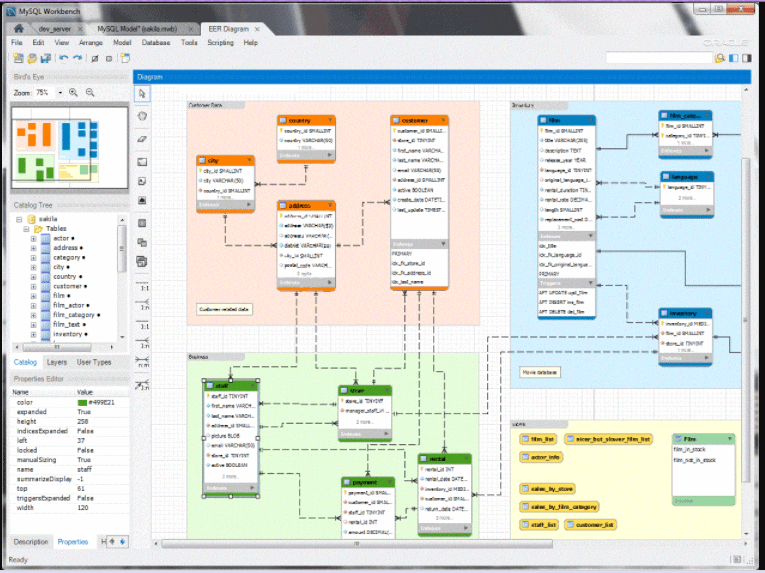
To sum up, MySQL offers high performance, speed and flexibility, as well as complete tools for managing registrations, users and connections. It has a great stability and security when facing our projects, with professionalism and potency in its use.
So much for this little trip. We have gone over the origins of the databases to guide us towards more specific points so that you can choose your future database tools with good judgment. I hope I’ve been able to clear up any doubts you might have had before reading the article. I encourage you return to the blog to continue expanding your knowledge and never stop learning about new concepts.
About Pandora FMS
Pandora FMS is a flexible monitoring system, capable of monitoring devices, infrastructures, applications, services and business processes.
Of course, one of the things that Pandora FMS can control is the hard disks of your computers.
Would you like to know more about what Pandora FMS can offer you? Discover it by entering here: https://pandorafms.com
If you have more than 100 devices to monitor, you can contact us through the following form: https://pandorafms.com/en/contact/
Also, remember that if your monitoring needs are more limited you have at your disposal the OpenSource version of Pandora FMS. Find more information here: https://pandorafms.org
About Pandora FMS
Pandora FMS is a flexible monitoring system, capable of monitoring devices, infrastructures, applications, services and business processes.
Of course, one of the things that Pandora FMS can control is the hard disks of your computers.
Would you like to know more about what Pandora FMS can offer you? Discover it by entering here: https://pandorafms.com
If you have more than 100 devices to monitor, you can contact us through the following form: https://pandorafms.com/en/contact/
Also, remember that if your monitoring needs are more limited you have at your disposal the OpenSource version of Pandora FMS. Find more information here: https://pandorafms.org
Pandora FMS’s editorial team is made up of a group of writers and IT professionals with one thing in common: their passion for computer system monitoring. Pandora FMS’s editorial team is made up of a group of writers and IT professionals with one thing in common: their passion for computer system monitoring.







